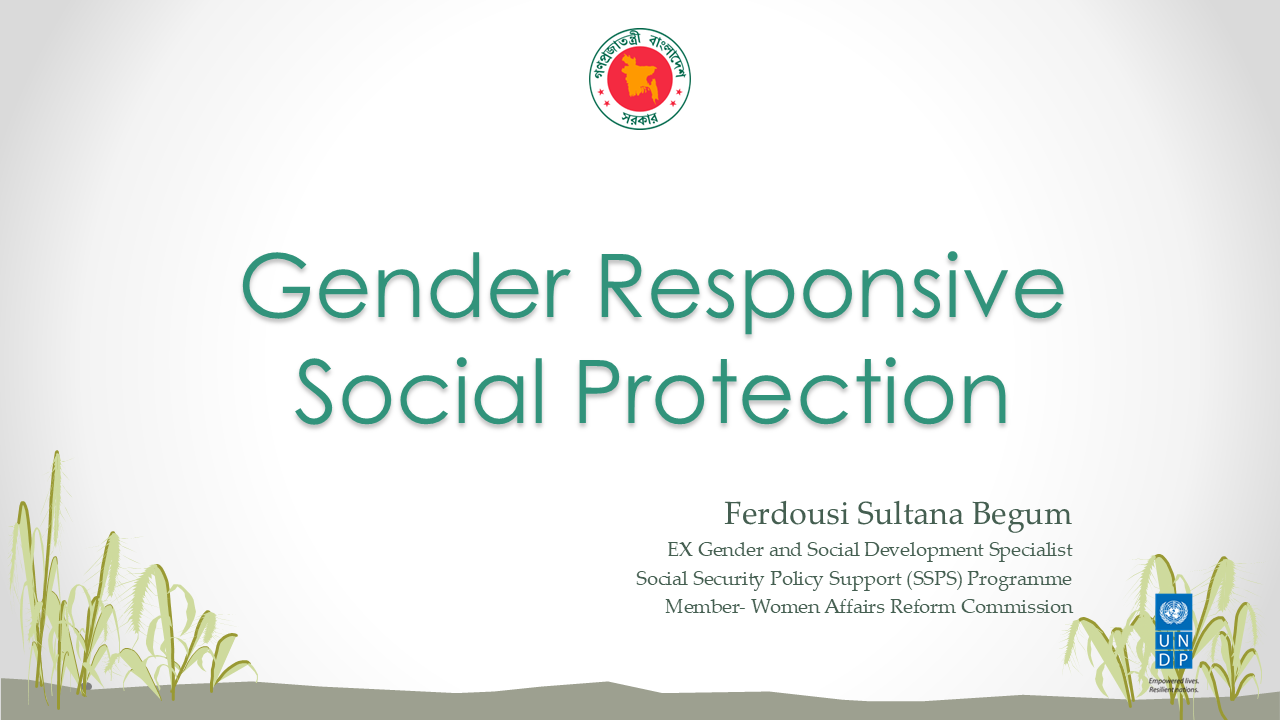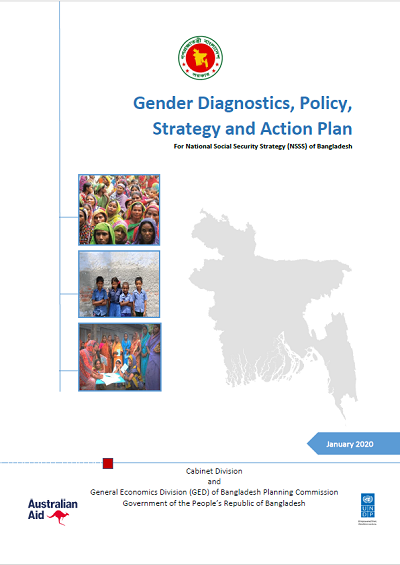Ferdousi Sultana Begum, Member, Women Affairs Reform Commission
Bangladesh has made significant progress toward middle-income status, yet poverty and vulnerabilities remain widespread, particularly among women and girls who face systemic inequalities, limited assets, and gender-based discrimination. Recognizing that social security can serve as a transformative tool for gender equality, the Government of Bangladesh incorporated gender as a cross-cutting priority within the National Social Security Strategy (NSSS). A Gender Policy, endorsed in 2018 by the Central Management Committee of National Social Security Programmes, provides the foundation for advancing women’s empowerment and reducing gender gaps. Building on this, the Gender Strategy and Action Plan guide 35 Ministries and Divisions in designing and implementing gender-responsive programmes. The strategy is informed by diagnostic research that highlights how social norms and structural barriers intensify women’s disadvantages. Priority areas include food security, livelihoods, labour market participation, financial inclusion, social empowerment, urban outreach, expanded insurance coverage, and resilience to shocks. Through concrete ministry-specific actions, the framework aims to strengthen women’s agency, ensure inclusive access, and operationalize gender equality within the NSSS.





